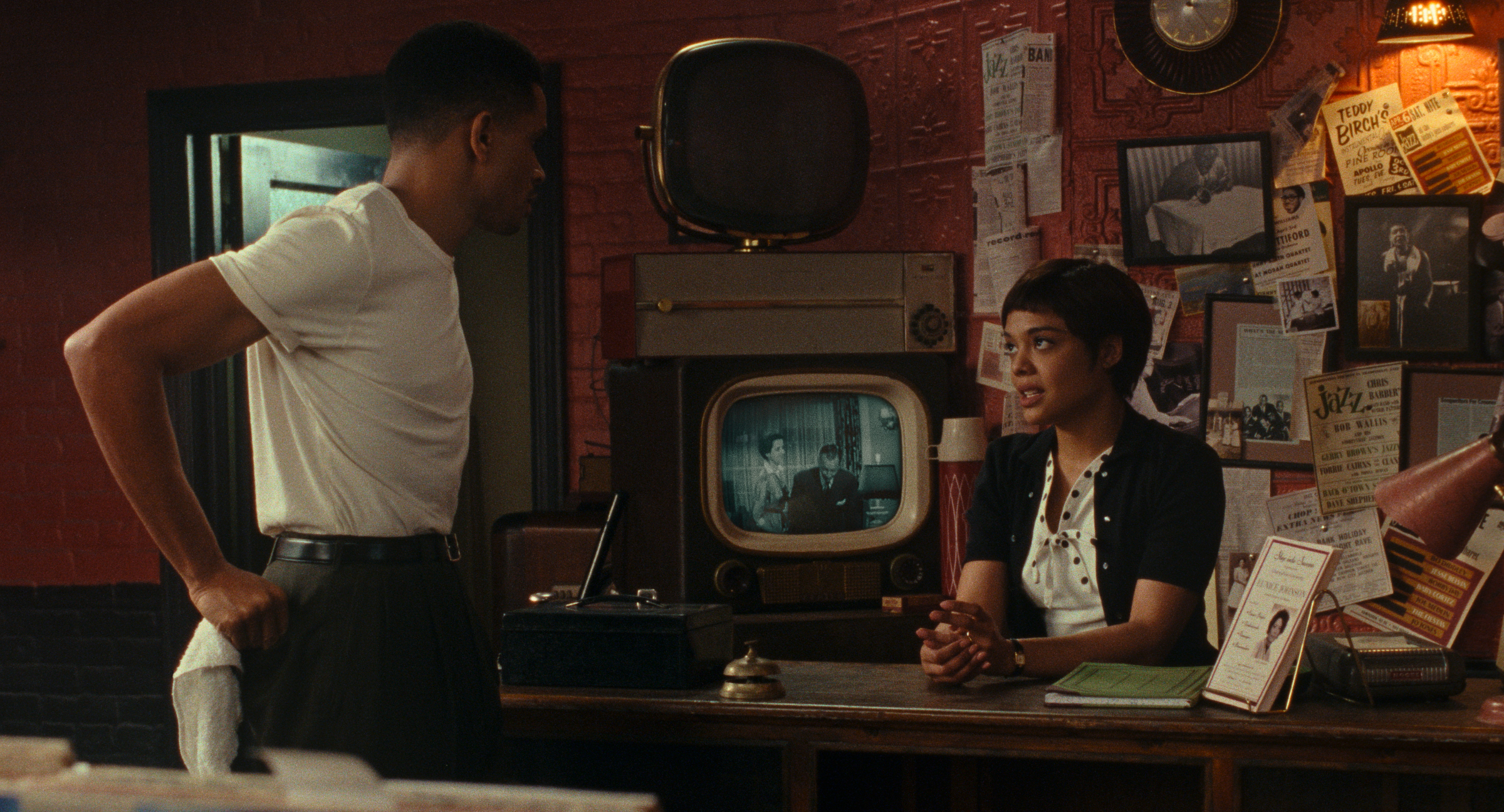What to Watch Verdict
The fact that 'Sylvie's Love' sets the heart racing should be recommendation enough.
Pros
- +
♥️Fierce romantic chemistry.
- +
♥️Great attention to period details and aesthetic.
- +
♥️More on its mind than just its central love story.
Cons
- -
♥️A few clumsy scripting issues.
Sometimes you have to make something new to rectify the lack of something old. This is the tone and tenor of Sylvie’s Love, a romance that is directly evocative of cinema from the late 1950s and early 1960s, telling a love story set in that era in a manner that it would have never been told in that era. It’s a tender, feminist take on Black love, a centering of Black perspectives that doesn’t belabor the injustices of American history without erasing them, indulges in more progressive attitudes than its inspirations, and gives us a couple of charming leads to fawn over as we question will they, won’t they.
Sylvie (Tessa Thompson) spends a summer working at her father’s (Lance Reddick) Harlem record store, waiting the return of her distant fiancé and taking in as much television as she can between ringing up customers. When Robert (Nnambi Asomugha), a saxophone player trying to make it big in a jazz quintet, responds to a Help Wanted sign in the window, Sylvie and Robert begin a whirlwind forbidden romance, secretly condoned by Sylvie’s father but admonished by her mother as being beneath her station.
The romantic chemistry between Thompson and Asomugha is electric, and not simply because the film is premised upon its presumed existence. This is a movie built on casual laughter, furtive glances, interrupted moments of longing, and passionate extended kisses that allude to the more explicit reaches of the imagination. You believe these characters are falling in love because you are, in turn, falling in love with them, whether its Sylvie’s drive to find an identity separate from whatever relationship she’s in or Robert’s pursuit of a career doing what he loves.
What makes Sylvie’s Love bold, though, is that the summer romance comes to a sudden end halfway through the film, cutting forward five years later as Sylvie and Robert rediscover one another. The circumstances of their departure from one another have left them with severely altered lives, and the rediscovery of their connection sparks a dramatic change in their priorities and trajectories. The focus isn’t solely on what must happen for these two lovers to end up together, but on what must change within themselves in order for them to be happy even without each other. This leads to a remarkably prescient turnabout of Sylvie’s and Robert’s self-perception in their relationship that remains subtle enough that it doesn’t distract from the main romantic thrust of the story.
This is all cloaked in luscious period-appropriate costuming and set design, evoking a grounded vision of the time while still indulging in a bit of fantasy and a coat of glossy sentimentality. The jazz soundtrack in particular stands out in whisking you to this very particular setting, enhancing the moments that bring Sylvie and Robert closer together and remaining conspicuously absent when they drift apart.
Some weaker points to nitpick include a first act exposition dump that could have been integrated less clumsily and a dramatic turn in the third act that could have served to wrap up the film instead of letting it drag on for a few more scenes. But Sylvie’s Love doesn’t have to be perfect to stand out as an exemplary bit of romantic escapism. It certainly doesn’t hurt that it has more on its mind than chemistry and period aesthetic, but at its core this film is about watching two people fall in love and seeing how they have to navigate years of obstacles to find their happiness. The fact that it sets the heart racing should be recommendation enough.
Sylvie’s Love premieres on Amazon Prime on December 23, 2020.
The latest updates, reviews and unmissable series to watch and more!
- The best Amazon Prime movies
- Amazon is right: You don't own your digital media
- The best shows on Amazon Prime
- New movies on Amazon Prime
Leigh Monson has been a professional film critic and writer for six years, with bylines at Birth.Movies.Death., SlashFilm and Polygon. Attorney by day, cinephile by night and delicious snack by mid-afternoon, Leigh loves queer cinema and deconstructing genre tropes. If you like insights into recent films and love stupid puns, you can follow them on Twitter.


